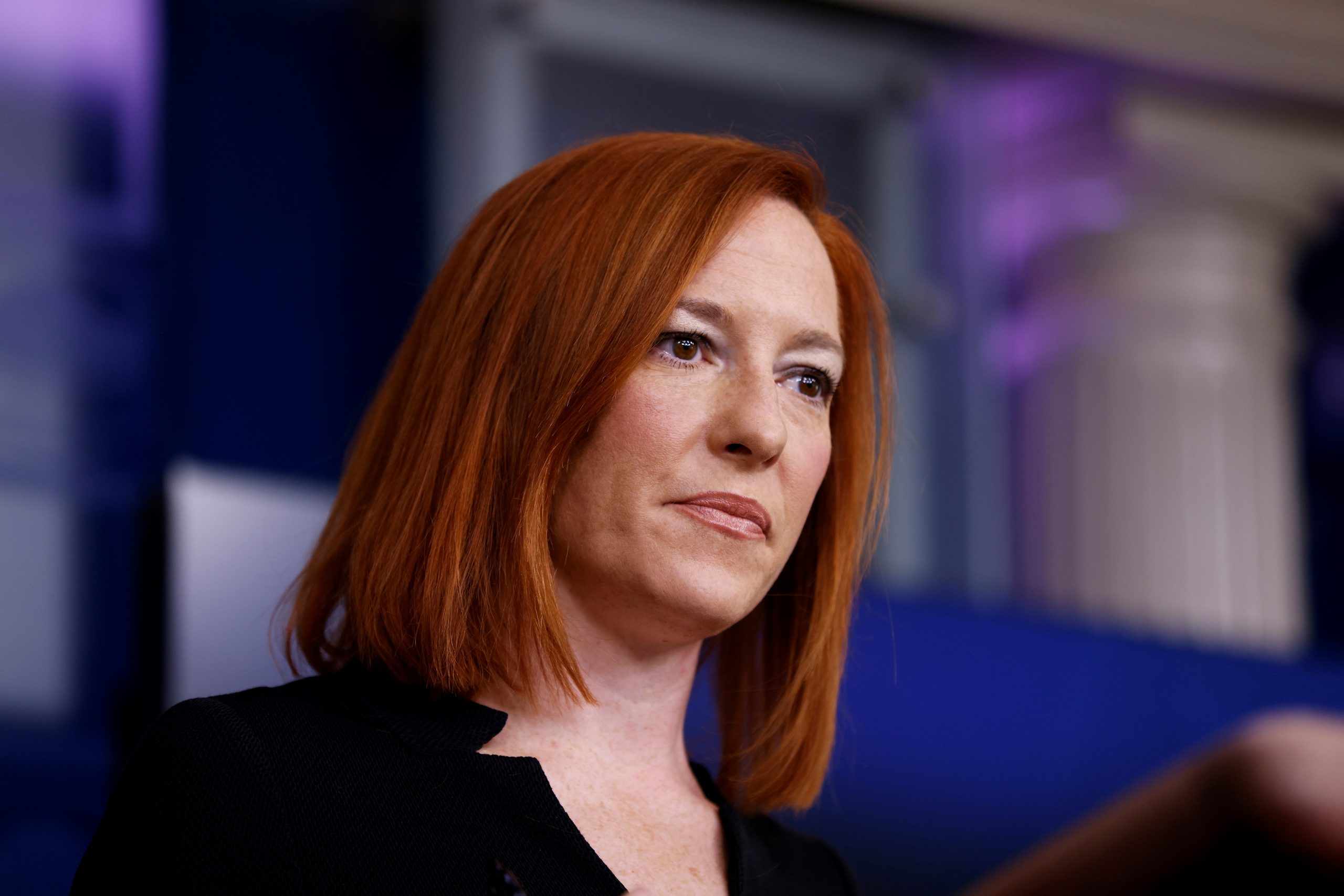White House Press Secretary Jen Psaki revealed she does not like being called “nice,” saying it “is like nails on a chalkboard.”
Vogue magazine featured a profile of the press secretary in its latest issue. Written by Lizzie Widdicombe, the profile takes a deep dive into Psaki’s previous experiences in politics as well as her current position with the Biden administration. Here are six takeaways.
It is all about the tone
Psaki told Vogue the most important thing about speaking on the president’s behalf is tone, adding, “The first thing he said to me was ‘We need to be aligned on tone,’ or, really, he needs me to be aligned with him.”
She continued, “He said, ‘We are healing a country whose nerves have been frayed. It’s just a little bit frantic. We need to be projecting calm, openness to engagement, governing for all people.’ It doesn’t mean you don’t have moments where you are tough or firm or make clear to people when they’ve crossed a line. He does that, too.”
Psaki called the tone her “North Star.”
She’d ‘manage what needed to be managed’
Psaki’s former White House colleague David Axelrod praised her handling of the Obama 2008 press bus.
“Things happen on the road. You’re faced with a sh*tload of reporters, and all of them have different stories they’re working on and problems and needs. When she went out on the road, things would go smoothly. She’d handle it. She’d manage what needed to be managed. That’s an incredibly important quality in this business,” Axelrod said.
Psaki reflects on her experience with Obama’s press office staff
She recalled how the relationship between Obama’s people and reporters was not so warm and fuzzy.
The New York Times’s Peter Baker explained to Vogue, “Some people have this mistaken belief that it was warm and cozy. But they really didn’t hold back from telling us all the ways they thought we were stupid.”
Psaki confirmed it, saying, “They’re my friends, and they are some of absolutely the most talented and best people I worked with in politics, but the culture was to yell at reporters, slam the phone down.”
Touching on her time traveling with journalists and, also, bonding with them, Psaki said, “That’s never going to be comfortable to me.”
Avoid calling her ‘nice’
Psaki stressed that there is a better way to describe her than the word “nice.”
She explained, “It is like nails on a chalkboard. And it still happens. I was introduced to a foreign delegation in the hallway the other day as ‘This is Jen. You may have seen her do the briefings. She’s a really nice person.’ I’m like, Really? You can’t think of a better description?”
Psaki argued, “It’s also this desire to put people in a box. Yes, sometimes I’m friendly and joyful, and sometimes I’m tough, and sometimes I’m straightforward.”
Becoming a subject of Russian propaganda
In 2014, when Russia invaded Ukraine, Psaki “became the voice of the U.S. as it condemned the invasion,” Widdicombe writes. The Russian state-funded news network, RT, published a list called “Jen Psaki’s Most Embarrassing Fails.”
The profile goes on, “There were T-shirts printed with Psaki’s face, and conspiracy theories about a rumored pregnancy. Some of the criticism found its way into the U.S. media.”
Psaki said of the incident, “At first, it was upsetting. I remember talking about it at a briefing and getting a little choked up, because you feel like you are being picked apart.”
Some seasoned Russian correspondents later explained, “This is a badge of honor. This is telling you that your message is getting through, and they need to discredit you to their public.”
A ‘one-woman operation’
The White House press secretary does her own makeup.
“The Trump administration had a hair-and-makeup person on the payroll, but Psaki is a one-woman operation. She owes much of her current regimen—black eyeliner, simple lipstick—to a CNN makeup artist who has texted her tips. (Psaki has worked as a commentator for the network.),” Widdicombe writes.

























 Continue with Google
Continue with Google